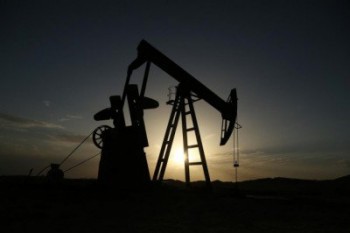
Oiling your mind
No doubt you’re starting to thinking about puddings for Christmas Day, last minute gift buying, present wrapping and packing for the annual holiday. But spare a thought for the plunging price of oil. There’s a couple of things you need to know, beyond giving the petrol station attendant a smile because fuel is only costing $1.20/litre.
Here are some of the possible explanations for the price plunge:
1. A supply glut thanks to US shale oil. Just as we saw in iron ore, persistently high prices triggered a fracking revolution, which in caused everyone to imagine more oil.
2. Obviously OPEC is responsible for the timing of the price collapse. Their price war is simply aimed at cutting high cost marginal players such as shale producers in the US at the knees. Most recently, OPEC opted to make no changes to its production levels. In normal circumstances you might have thought they’d reduce production to lift prices. Not this time, suggesting a near term recovery is not something to be betting on.
3. Supply has increased from just under 91 million barrels/day two years ago to nearly 94 million barrels/day today.
4. Thanks to China and Europe, demand is not particularly robust. OPEC, in its monthly report on Wednesday 11 December 2014, forecast that demand for its oil would drop to 28.9 million barrels a day in 2015 versus 29.4 million this year. Of course such projections serve their current purpose.
5. And don’t forget the stronger US dollar, the currency against which commodities are priced. A stronger dollars makes commodities more expensive.
As an aside, I recently read the following “the market manipulation that is OPEC’s specialty has become financially ineffective, industrially anachronistic, and — for the cartel’s own populations — economically ruinous.” Adding; “OPEC — the cartel that used to bully superpowers, unnerve financial markets, and bilk drivers throughout the world — is clinically dead.”
Now that we have the ‘why?’ out of the way, what about what happens next?
Here’s what is concerning in the near term about this particular bubble popping.
Contagion.
The junk bond market in the US has seen a growing number of issuers look a lot like shale oil hopefuls. Indeed, over $550 billion has been issued in high yield bonds by energy companies since 2010. It was only a few months ago that Janet Yellen observed “pockets of speculation.” Since then high yield bond rates have risen from 5.6 per cent to 9.5 per cent.
You might argue that junk bond issuers deserve what they get, but it’s not just individual junk bond issues and their issuers that are being hammered. Entire countries are affected by the oil price slump. Countries from Venezuela and Nigeria to Columbia, Sudan and Iran are impacted adversely. Oil represents half of Columbia’s exports.
Rising bond yields turn off the appetite for borrowing by companies. That in turn impacts project investment intentions and employment. Defaulting junk bond issuers also make investors move down the risk curve, selling anything remotely risky and pushing yields across the risk spectrum higher.
In turn that affects equities.
Hi Roger,
In the above article supply (production) is 94 m barrels per day yet consumption is a third, if this is so who is stock piling the excess?
Raymond
The lower figure is the demand for OPEC’s oil only, the higher figure is total worldwide production.